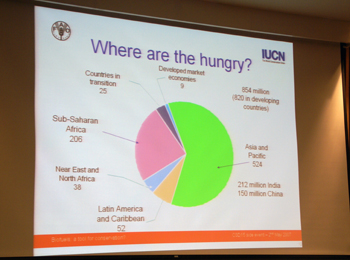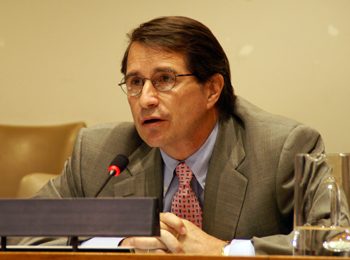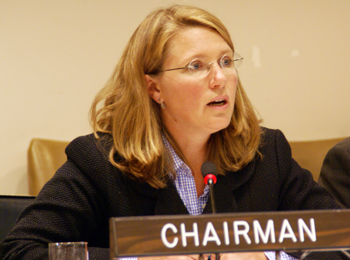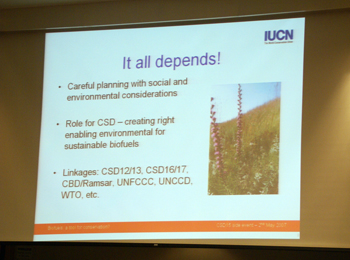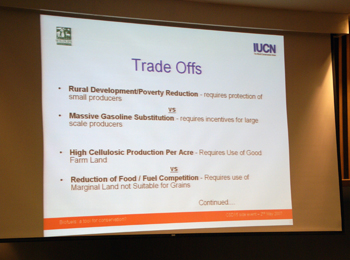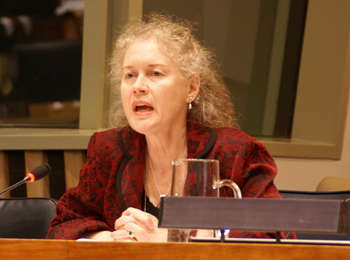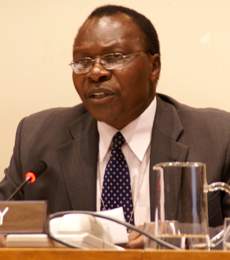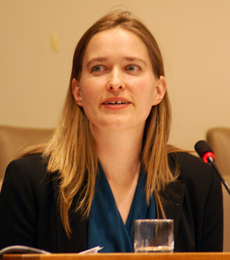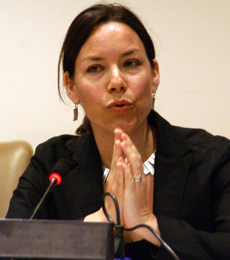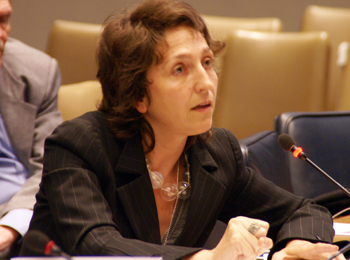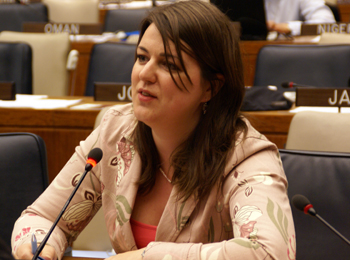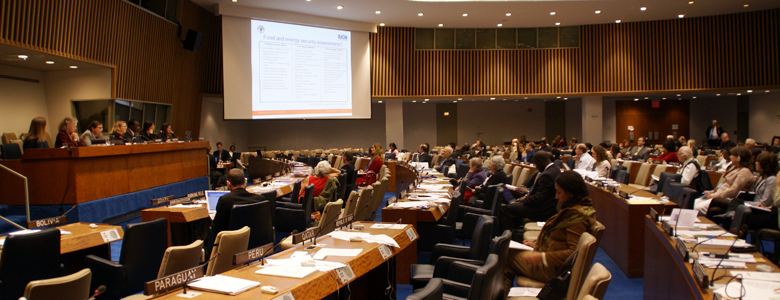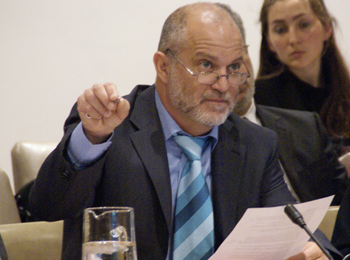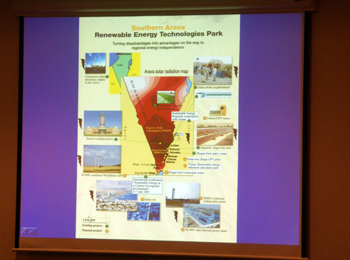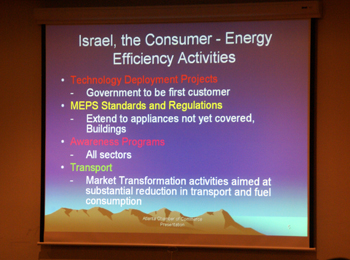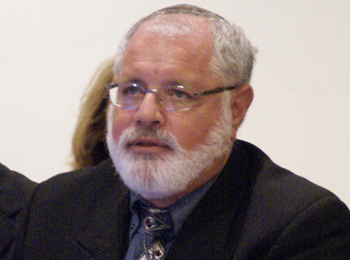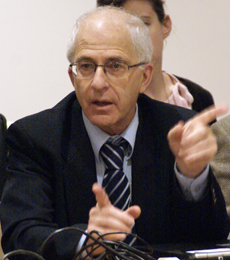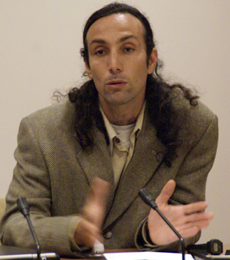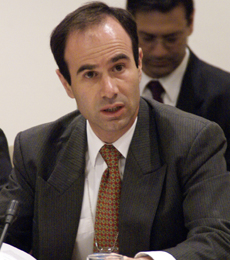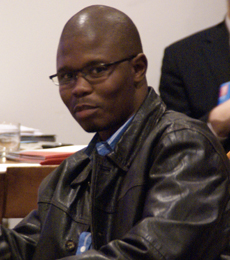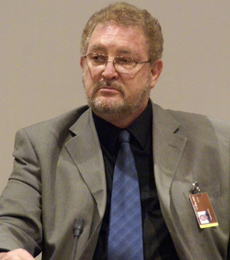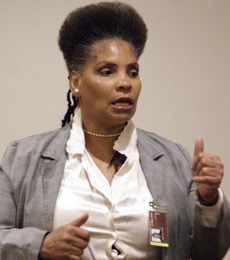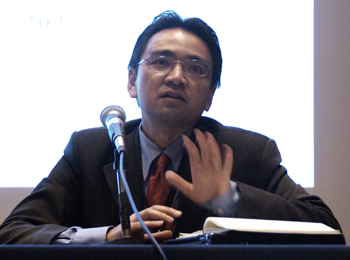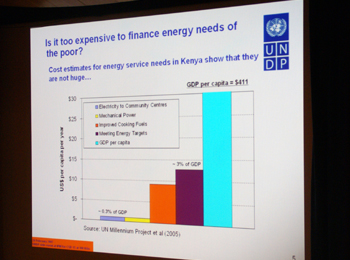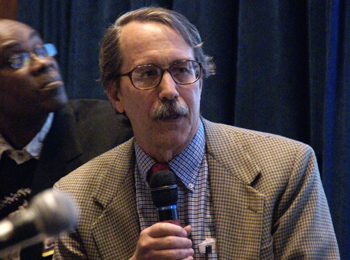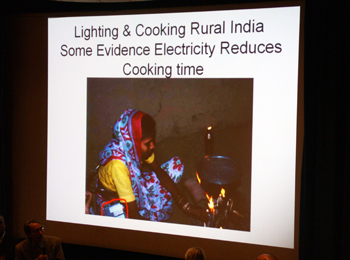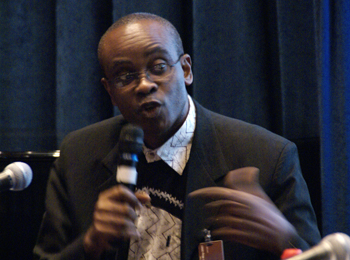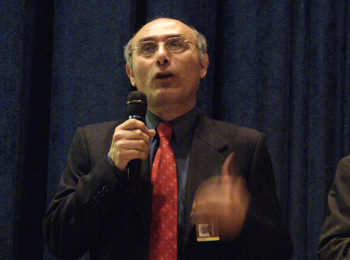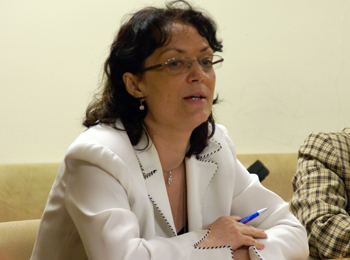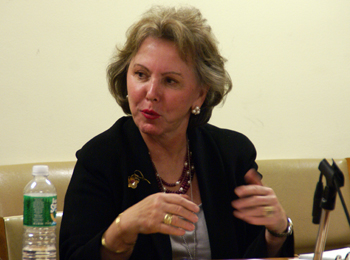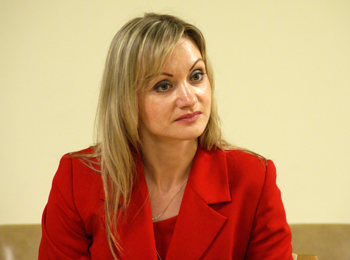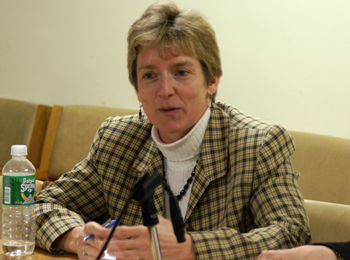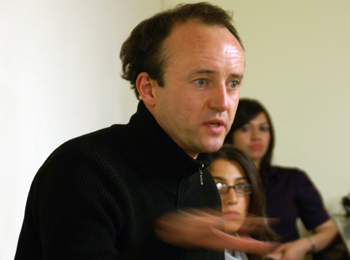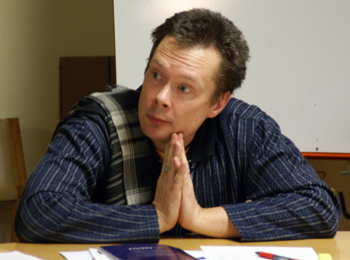 |
||
|
published by IISD, the International Institute for Sustainable Development
in cooperation with the UNDP Secretariat |
|||
|
Special Report on Selected Side Events at the Fifteenth Session of the Commission on Sustainable Development (CSD-15)
|
|||||
| 30 April - 11 May 2007 | United Nations headquarters, New York | |||||
 |
 |
|||
 |
||||
Events convened on Wednesday, 2 May 2007
|
Andrea Athanas, IUCN, introduced the topic, saying that energy systems and ecosystems are inextricably linked and that an energy system’s impacts on ecosystems and biodiversity need to be considered. She said that IUCN’s interest in biofuels relates to energy independence and security issues. Jeff Tschirley, FAO, discussed bioenergy constraints and challenges for addressing food security and sustainability. He noted that lack of access to energy is a major constraint for areas suffering from chronic and acute food shortages and that small-scale biofuel production could provide food security, diversification of feedstock crops, infrastructure development and employment. Barbara Bramble, National Wildlife Federation, emphasized that biofuel production must occur under social and environmental safeguards in order to optimize its benefits, such as low carbon emissions, and mitigate its potential downsides, such as biodiversity loss. She emphasized that biofuels, especially “second generation” biofuels, have great potential to provide sustainable energy and protect biodiversity if they are well managed. Daniel Nyamai, World Agroforestry Centre, discussed the use of the “miracle tree,” jatropha, a perennial biofuel crop that is capable of growing in arid conditions and could be a means for landscape restoration, sustainable energy provision and economic empowerment. Nyamai called for a structured development of the crop, adding the need for a national, regional and international biofuel strategy. Annie Dufey, International Institute for Environment and Development, emphasized the importance of biofuel trade, noting that it can deliver opportunities for developing countries, and can ensure the necessary economies of scale in small and medium biofuel-producing countries. She said that tariffs are one of the main barriers to international biofuel trade, and highlighted the need to implement trade policies that include small-scale producers. Charlotte Opal, Roundtable on Sustainable Biofuels, explained that the Roundtable is a multi-stakeholder initiative to develop principles and criteria for sustainable biofuel production that are simple and accessible, generic to all crops, adaptable to new information, and compliant with WTO rules. She hoped that policy makers, banks, companies, NGOs and other actors would utilize the standards. Participants discussed, inter alia: the need for workers to be considered in the stakeholder mix of biofuel production; the importance of the ethical dimension of biofuel production; whether or not successful biofuel production depends on international trade; and the involvement of women in biofuel issues. |
||||
|
|||
|
Ilan Fluss, Permanent Mission of Israel to the UN, introduced the event as part of his country’s effort to enhance its activities at CSD and to cooperate with other countries in sustainable development.
Udi Gat, Hevel Eilot Regional Council, described the development of a “renewable energy technologies park” in Arava, a remote, arid region of southern Israel with high solar radiation levels. He said that the park aims to provide a realistic site for testing solar and other sustainable energy technologies for arid areas. He highlighted the value of the region’s strong research and development and academic infrastructure, a skilled population including Israeli, Palestinian and Jordanian students, and existing initiatives including energy-efficient buildings and algae biofuel research. Z’ev Gross, Ministry of National Infrastructures, Israel, outlined his government’s efforts to make Israel a center of excellence in the “new energy economy.” He outlined, inter alia, regulations for minimum energy performance standards, research and development support, awareness programs, tax incentives and market-based instruments, and expressed willingness to enter into cooperative relationships with other countries. Eyal Biger, Israeli Coalition of Green NGOs, said that NGOs should cooperate with governments, but also criticize and provide constructive policy input. He listed civil society initiatives such as a green network for environmental education, in cooperation with the Ministry of Education, and a project to replace diesel generators in Bedouin communities with solar technology. He urged the Israeli government to move from declarations to action, saying that selling clean technology to other countries is laudable but that it needs to be implemented in Israel as well. Perry Lev-On, The Levon Group, highlighted Israel’s wealth of academic institutions with links to sustainable energy, and invited international collaboration. Participants considered how to mainstream solar water heating and make it affordable, with some suggesting putting solar heating requirements into building codes. Discussion also focused on: the cost and land footprint of large-scale solar plants; energy-conscious building design; and how to ensure that the new UN building uses “green technology” as a good example for the world. |
|||
|
|||
|
Anna Ballance, Department for International Development, UK, opened the event, saying that investment in energy is needed to meet the UN Millennium Development Goals (MDGs). Minoru Takada, UNDP, discussed the global challenge of financing access to energy services for the poor, estimating that providing energy services to support the MDGs would cost approximately US $200 billion dollars over 10 years. After highlighting a successful and affordable project to distribute improved cooking stoves in Nepal, Takada said that ODA funds related to energy need to link directly to providing energy services to the poor, instead of being primarily channeled towards larger infrastructure and renewable energy projects. Douglas Barnes, The World Bank, said that the rural electrification rate is about 10% in Africa, compared to 40-60% in most of the rest of the world, and advocated the comprehensive “Action Plan for Energy Access in Africa,” as a way to address the issue. Barnes said international institution and donor support and country ownership are needed for effective implementation to occur, adding that the programme is just starting and is not yet funded. Teodoro Sanchez, Practical Action, discussed mobilizing local capital to implement decentralized renewable energy solutions for the poor. He highlighted a case study on a revolving fund for the installation of small hydro schemes in Peru, emphasizing that local businessmen, farmers, peasants, organized groups and local authorities can help fill the financial gap in energy access for the poor. Nnimmo Bassey, Friends of the Earth Nigeria, stressed that poor people don’t lack energy because there is no power, but because political indifference and “transnational resource grabbers” have made them powerless. He said the solution lies in advocating for energy sovereignty and the development of small community-based projects that people can directly own, run and maintain. |
|||||
|
|||
|
Christine Durbak, World Information Transfer, reported that global attention is refocusing on the possibilities of nuclear power. She highlighted safety concerns over the issue of disposing of high-level nuclear waste, particularly given current global security preoccupations. Durbak also raised questions over nuclear power’s economic competitiveness compared to other energy sources.
Louisa Vinton, UNDP, said that the UN’s approach to the Chernobyl disaster is moving away from emergency management and towards social and economic development for the impacted territories. Reporting on the findings of the Chernobyl Forum, a consortium of UN agencies, she stated that most people in the area suffered only a low radiation dose, and that negative health and environmental impacts were much less severe than commonly thought, with the main problem for local people being mental health issues. Oksana Leshchenko, UNDP, reiterated the need to focus on development challenges resulting from Chernobyl, stating that 6 million people were affected by the resulting economic decline and a sense of losing control over their own lives. She said local people need to be empowered through reliable information and community-based development. Nataliya Zilgalova, World Information Transfer, listed some of the environmental impacts of Chernobyl on the trans-Carpathian region, including water table contamination, impacts on important forest biodiversity, and possible contamination of rivers flowing to the Black Sea. She also highlighted that people in the region suffer from thyroid and mental health problems and diminished quality of life. Participants discussed how to address the divisions over nuclear issues and move the debate “from side events into plenary.” One speaker suggested that nuclear technology has advanced significantly and should not be judged on the basis of Chernobyl, while another participant questioned whether people can trust bodies such as the IAEA and the nuclear lobby. |
|||
|
|||
|
||
|
Click the above button to go back to our ENB main coverage
|
||
|
|
|
|
|
||
|

